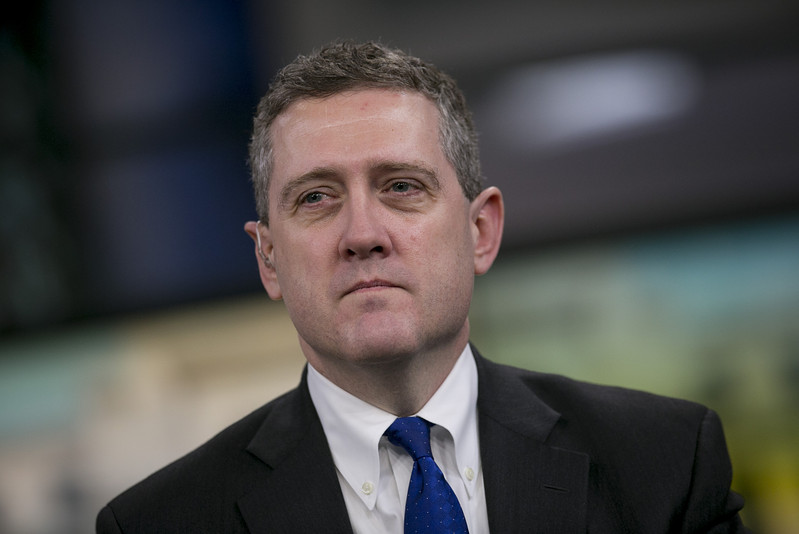Expertise Asia has posted almost 1,000 articles over the past 5 years. Interested readers have the option to contribute to the publication, as an acknowledgment of the value provided to them. Contributions do not commit the author to future production. Thank you for your continued support.

Bullard basically covered two areas in his speech. One, he talked about the trade war. Not surprisingly, his views came across as constructive. Tariffs would certainly be bad in the longer run. His base case, however, is that a deal is to be done. The rest is posturing. But he also pushed the ball into the Chinese court. Beijing should go along with what is being asked from them. It would re-establish credibility on the part of China, and investment into the country would flourish.
I found it a little surprising for Bullard to say that. One would assume that he isn’t privy to the ins and outs of what is actually being asked from China, so his proposition for Beijing is somewhat far-fetched and very general, to say the least. To be sure, if it was that easy for China to agree to everything under the pretext that things will be fine and conducive to stable growth going forward, why not? However, we can equally assume that Washington is demanding things Beijing simply cannot agree to.
Two, and that was really where his mind was it seemed, he wanted it to be known what he thought about inflation. As a good party soldier, he introduced those remarks by defending the US economy as vibrant and the labour market as being the best in 50 years. Normalisation of monetary policy had been appropriate. But despite this growth scenario inflation constantly fell short of the Fed’s 2% target, for years now. More importantly, inflation expectation also pointed to a shortfall in coming years.
It just didn’t seem to play ball. Something must be wrong, and Bullard’s view is that easier Fed policy may be required to give inflation some leeway to catch up. True, the abrupt end to what seemed to be a slam dunk of further tightening was a sea change by any measure. But he wasn’t shy to point out that his rate outlook into 2019 had always been flat, and his colleagues at the committee who differed from his view came around to realise that they were too hawkish.
At the same time, Bullard made sure to point out that the Fed did not perform an actual rate cut but merely lowered projections. That was sufficient and the key driver, in his view, to ignite a rally in Treasuries and bring 10-year rates back by approx. 85bp from the highs in November. This was bullish for the economy. Growth for the year was now projected at 2.5%, far better than previous expectations.
On the risk of a recession, he much like Janet Yellen when she spoke in HK recently self-deprecatingly but jokingly hinted at central banking usually being responsible for recessions by pushing the tightening envelope too hard. Basically, he isn’t really concerned about a recession in the making, even though he seems to be one of the members who take the flattening of the yield curve a lot more seriously than the punditry around him.
Interesting his answer to the question of what kept him up at night. They call it fintech, he quipped, as he is suspicious of any areas in the economy that are growing massively but aren’t sufficiently regulated. According to him, crises have in the past mostly emanated from new industries that had not been covered by a proper regulatory environment. His experience tells him that it is difficult to focus authorities’ attention to this, as in their response would be there were busy with things on hand and it wasn’t their job.
The postings on this website are confidential and private. The material is provided to you solely for informational purposes and as a complimentary service for your convenience, and is believed to be accurate, but is not guaranteed or warranted by the author. It has not been reviewed, approved or endorsed by any financial institution or regulatory authority in your jurisdiction. It should not in any way be construed as investment advice and/or -recommendation of any kind, in any market and in any jurisdiction. The views expressed therein are none other than the author’s personal views. He is not responsible for any potential damages or losses arising from any use of this information. The reader agrees to these terms.